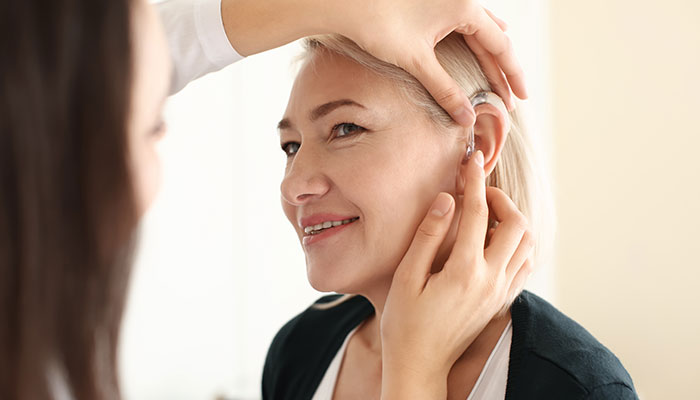One person’s noise, which is defined as an unwanted sound, is another person’s favourite hard metal music. But whatever your taste in tunes, if their volume makes you have to raise your voice to be heard by the person next to you, you are putting your hearing at risk.

Too loud? Concert-goers risk ringing in their ears - a condition known as tinnitus - even after just one event.
When you’re at a concert, a nightclub, a party, or in a car – wherever people like to pump up the volume – apply the conversation test above and also ask yourself the following:
- Do you think this music could damage your hearing?
- Is this the sort of music that leaves your ears ringing?
If the answer to either of these questions is yes, then the music is sufficiently loud to damage your hearing. In the first instance, the damage experienced will probably only be temporary, such as 'ringing' in your ears (tinnitus) and/or the world appearing a little quieter than normal when the music stops. This is a temporary threshold shift (TTS).
However, if you continue to experience music at this level on repeat occasions there is a high probability that you will experience damage to your hearing. This could be evidenced by experiencing tinnitus more often, even permanently, and/or developing a permanent (hearing) threshold shift (PTS). If you continue with the same listening habits the problem will only increase.
The potential hearing damage from listening to music, either with an 'open ear' or through headphones, is a function of how loud the music is and how long you listen to it.
Once this sort of damage occurs to your hearing it cannot be 'fixed'. It’s permanent. There are remedial and rehabilitative actions that can be employed but these will never fully restore your hearing to its original status.
The potential hearing damage from listening to music, either with an 'open ear' or through headphones, is a function of how loud the music is and how long you listen to it – it’s a case of all things in moderation so you don’t want to have it too loud for too long. With ear buds, as long as you can hear what’s going on around you and can talk with someone while you have them in, you are okay. If you have ear muffs that block outside sound, then you’ve got to make a judgment as to how loud the music is; if it’s a little distorted and just unpleasant to listen to, then it’s too loud.
Hearing damage is painless, bloodless and you can’t see it so you’re unaware of it. It’s not until after you’ve done a significant amount of damage that it becomes apparent and measurable. And that’s when it can become a big quality of life issue.
First published April 9 2018


